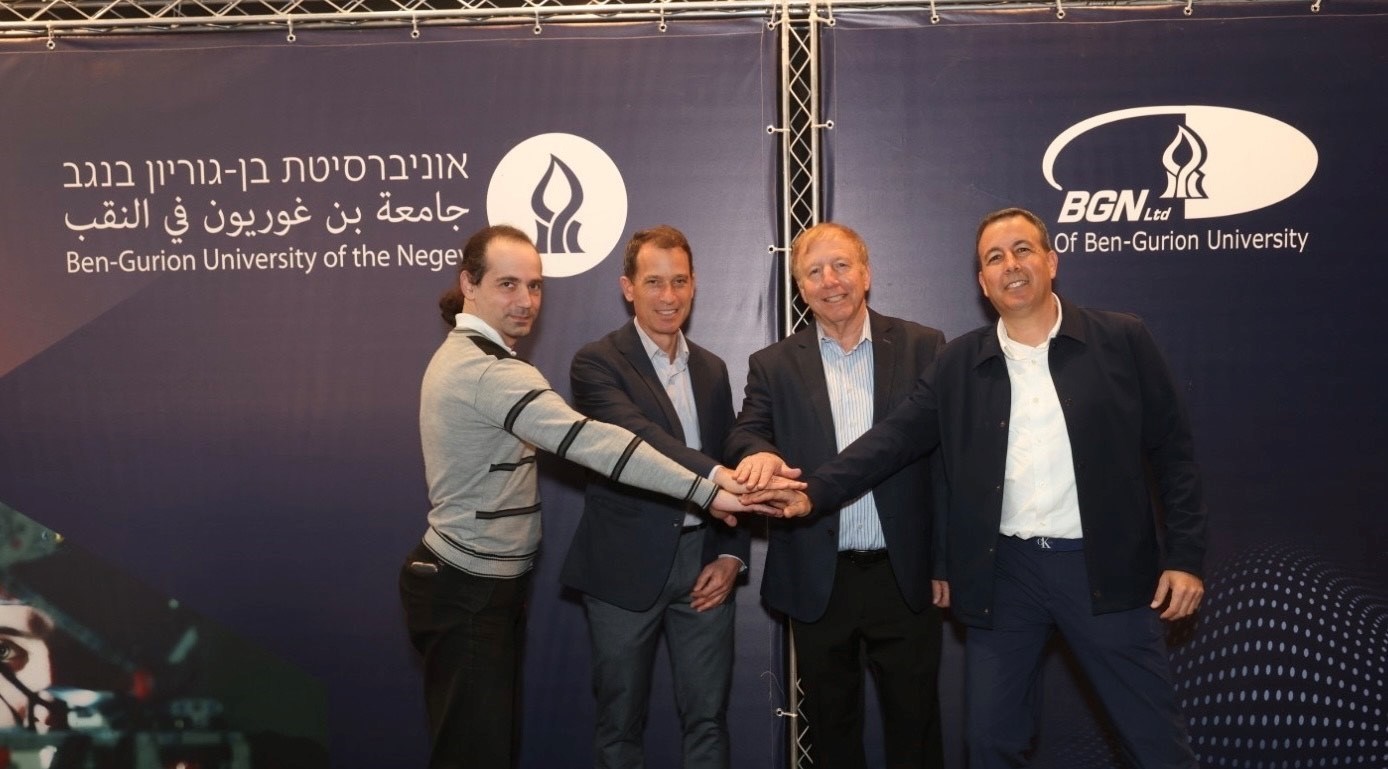BGN Technologies, BGU's technology transfer company announced yesterday at the Cybertech Global Tel-Aviv 2022 conference, the launch of the joint Israel-US consortium, ICRDE, in the field of cyber protection of energy facilities, for the purpose of promoting an R&D collaboration that will address cyber threats on energy sources and facilities. Total investment is estimated to reach $12 million, including funds from the participating institutions.
The frequency and scale of cyberattacks on energy facilities are rising, and many countries are seeking new and efficient methods for protecting critical resources such as water, electricity, and gas, as well as the facilities that produce, dispense and store energy. According to a report of the World Economic Forum, published in 2020, cyberattacks on critical infrastructure facilities rank 5th in terms of level and number of threats.
This high threat level prompted the two governments to acknowledge the urgent need to invest resources to minimize the danger and the scope of potential damage. The climate crisis also highlights the need to recruit the most accomplished researchers to develop products and services to deal with the effects of climate change. In order to protect energy facilities, the consortium will promote projects focusing on all manufacturing stages, as well as storage and energy distribution. The consortium provided a detailed work plan based on comprehensive research by American and Israeli researchers.
Dr. Rami Puzis, Department of Software and Information Systems Engineering, BGU, said, "ICRDE aims to promote joint R&D for protection from energy-related cyber threats and will encompass the following categories: establishing a database of cyber-physical system (CPS) attacks on energy facilities and simulation of these attacks in a controlled research environment; development of technology and advanced tools for monitoring and correlating the information technology (IT) and the operational technology (OT) layers of Industrial Control Systems (ICS) to protect energy infrastructures from attacks. Joint teams will develop, assess, and incorporate new technologies developed by the consortium members, transforming them into cybersecurity solutions for Israel and the US."

Above left to right: Dr. Rami Puzis, BGU; Josh Peleg, CEO of BGN Technologies; Dr. Eitan Yudilevich, Executive Director of the BIRD Foundation and Zafrir Levy, Senior VP Exact Sciences & Engineering at BGN Technologies (Photo Credit: Ronen Topelberg)
Members in the consortium include Israeli and American companies as well as government and research institutions. Activities will be led by BGU alongside Arizona State University. Among the US partners: Georgia Institute of Technology, Nexant, Delek US, Duquesne Light Company, Schweitzer Engineering Laboratories, and the MITRE Corporation. The Israeli partners include the following companies: Otorio, RAD, SIGA OT Solutions, Arava Power, DK Innovation, and Meptagon.
Josh Peleg, CEO of BGN Technologies, added, "Choosing BGU to lead the binational Israel-US consortium for cyber-protection of energy infrastructure is another validation of BGU's leadership both in the cyber and energy arenas. We look forward to a fruitful research collaboration between the industry and the Israeli and US research institutions consortium members, leading to invention, development, and marketing of vital solutions, now and in the coming years, for cyber-protection of essential infrastructure."
Dr. Eitan Yudilevich, Executive Director of the BIRD Foundation, said, "We congratulate BGU, Arizona State University, and all the partners in the Israel-US consortium for winning the US-Israel Energy Center grant, and for the impressive organization leading to a successful launch of activities. We believe that the products of this collaboration between Israeli and American innovation will have a significant impact on the ongoing efforts against cyberthreats on energy infrastructure in both countries."
The establishment of the Energy Center was authorized in 2018 by the Secretaries of Energy of both countries, under the law for strategic collaboration between the US and Israel. The Center is funded equally by the US Ministry of Energy and by the Israeli Ministry of Energy along with the Israeli Innovation Authority. The consortium for protecting energy facilities is part of a larger energy-related collaboration, focusing on four fields of operation: fossil energy and gas; energy storage; cybersecurity of essential infrastructure; and energy-water interfaces. The Energy Center consortia include Israeli and American partners in each of the four fields. Israeli and American universities lead the various consortia. In Israel - BGU (energy-water and cybersecurity of essential facilities); The Hebrew University (fossil energy); and Bar-Ilan University (energy storage). In the US – Louisiana University (fossil energy); the University of Maryland in College Park (energy storage); Arizona State University (cybersecurity of essential facilities); and Northwestern University (energy-water).
Media Coverage:
The Times of Israel
CTech Calcalist
Yahoo Money
No Camels